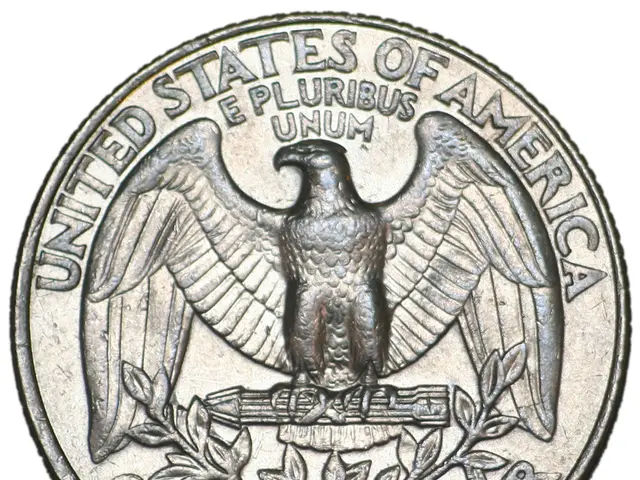Utilizing Forward Contracts: Explanation, Potential Risks, and an Illustrative Scenario
In the world of finance, two popular instruments for managing risks are forward and futures contracts. These agreements allow parties to buy or sell assets at a predetermined price in the future, providing a means to hedge against price fluctuations. But what sets these contracts apart?
Customization
Forward contracts are highly customizable agreements negotiated directly between two parties. This flexibility allows for a variety of underlying assets, quantities, prices, and delivery dates, making them ideal for managing risks associated with fluctuations in commodity prices, interest rates, and foreign exchange rates. In contrast, futures contracts are standardized with fixed contract sizes, expiration dates, and conditions set by the exchange.
Default Risk (Counterparty Risk)
Forward contracts carry higher default risk because they are private, over-the-counter (OTC) agreements without a third-party guarantor. This means that if one party fails to fulfill their obligations, the other may face significant losses. Futures contracts, on the other hand, have lower default risk due to the presence of a clearinghouse that acts as a counterparty to both sides and requires margin deposits, which mitigates counterparty risk.
Settlement
Settlement for forward contracts typically occurs at the end of the contract by physical delivery or cash settlement, depending on the agreement. This can expose the originating financial institution to a higher risk of default or non-settlement if the forward rate specified in the contract diverges widely from the spot rate at the time of settlement. In contrast, futures contracts are usually marked-to-market daily, with profits and losses settled each day through margin accounts, reducing credit risk and providing liquidity.
Trading
Forward contracts are traded OTC, meaning they are negotiated privately between parties and are not traded on formal exchanges. This lack of regulation and transparency can increase default risk. Futures contracts, however, are traded on regulated futures exchanges, which provide standardized contracts and centralized price discovery, enhancing liquidity and market transparency.
In summary, forward contracts offer more flexibility and are suited for specific hedging needs, while futures contracts are more liquid and suited for speculation and standardized risk management. Banks and financial corporations mitigate the risk of default by being careful in their choice of counterparty. Major corporations often use forward contracts to hedge against currency and interest rate risks. The size and lack of regulation in the forward contracts market can lead to cascading defaults in worst-case scenarios.
| Aspect | Forward Contract | Futures Contract | |------------------|------------------------------------------|---------------------------------------| | Customization | Highly customizable (asset, amount, date) | Standardized contract terms | | Default Risk | Higher, depends on counterparty | Lower, guaranteed by clearinghouse | | Settlement | At maturity, usually physical or cash | Daily marked-to-market with margin calls | | Trading | Over-the-counter (OTC), private | Exchange-traded, regulated |
[1] Investopedia. (2021). Forward Contract. [online] Available at: https://www.investopedia.com/terms/f/forwardcontract.asp [2] Investopedia. (2021). Futures Contract. [online] Available at: https://www.investopedia.com/terms/f/futurescontract.asp [3] The Balance. (2021). Forward Contract vs. Futures Contract. [online] Available at: https://www.thebalance.com/forward-contract-vs-futures-contract-3306141 [4] The Balance. (2021). What Is a Forward Contract? [online] Available at: https://www.thebalance.com/what-is-a-forward-contract-2386543 [5] The Balance. (2021). What Is a Futures Contract? [online] Available at: https://www.thebalance.com/what-is-a-futures-contract-2386544
- Banks and financial corporations often use forward contracts, particularly for hedging against currency and interest rate risks, due to their high customization, allowing them to tailor the contracts to their specific needs.
- While futures contracts are traded on regulated exchanges, providing better transparency and liquidity, forward contracts are traded over-the-counter, which can increase default risk due to lack of regulation and transparency.
- In the world of finance, when considering options for investing, businesses should be aware of the differences between forward and futures contracts, as the choice between them could significantly impact their risk management strategies.





